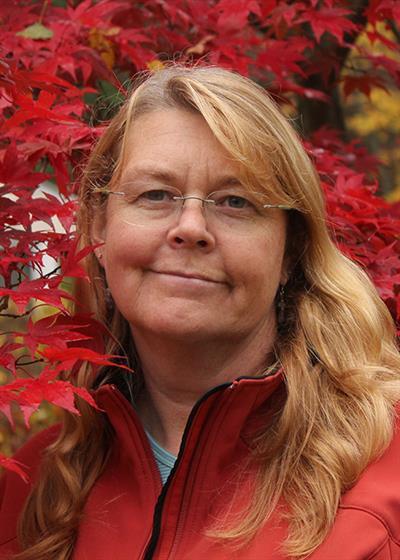-
About
- Leadership & Faculty
- News & Events
-
Admissions
-
Academics
- Graduate
- Advanced Clinical Training
- Continuing Education
- Academic Departments
- Academic Offices
- Simulation Experiences
-
Student Life
- Offices
-
Research
-
- Transformative Research
- Centers & Shared Resources
-
-
Hospitals & Clinics
- Emergency Care
- Hospital Services
-
Community Outreach
- Volunteer

Alison Robbins
D.V.M., M.S.

Research/Areas of Interest
Zoonotic diseases of public health importance; Wildlife diseases surveillance and epidemiology, especially rabies, amphibian chytridiomycosis, and white nose syndrome in bats; Disease control methods in free-ranging populations; Conservation medicine
Education
- Doctor of Vet Medicine, Tufts-Cummings School of VM, USA, 1992
- Master of Science, Tufts University, USA, 1989
- BS, University of New Hampshire, Durham, United States, 1983
Biography
Dr. Robbins is the Assistant Director for the Masters' Program in Conservation Medicine, and a Research Assistant Professor in the Department of Infectious Disease and Global Health at the Cummings School. Dr. Robbins' research interests focus on infectious wildlife diseases of conservation and public health importance, and control of wildlife disease in free-ranging populations. Emerging fungal diseases of humans, wildlife, and plants is an additional area of Dr. Robbins' research interest. Dr. Robbins directed the Cape Cod Oral Rabies Control Program from 1992 to 2008, in which free-ranging raccoons in Massachusetts were vaccinated to prevent disease spread. In 2006 she was a visiting scholar in Queensland, Australia studying amphibian chytrid disease ecology and epidemiology. Since 2009 Dr. Robbins has worked on White Nose Syndrome in bats, developing diagnostic and treatment methods.
Dr. Robbins contributed to building the Conservation Medicine Masters' Program beginning in 2010, and continues to develop interdisciplinary curriculum and teaching methods, direct and teach courses, and mentor the next generation of conservation medicine practitioners.
Dr. Robbins contributed to building the Conservation Medicine Masters' Program beginning in 2010, and continues to develop interdisciplinary curriculum and teaching methods, direct and teach courses, and mentor the next generation of conservation medicine practitioners.